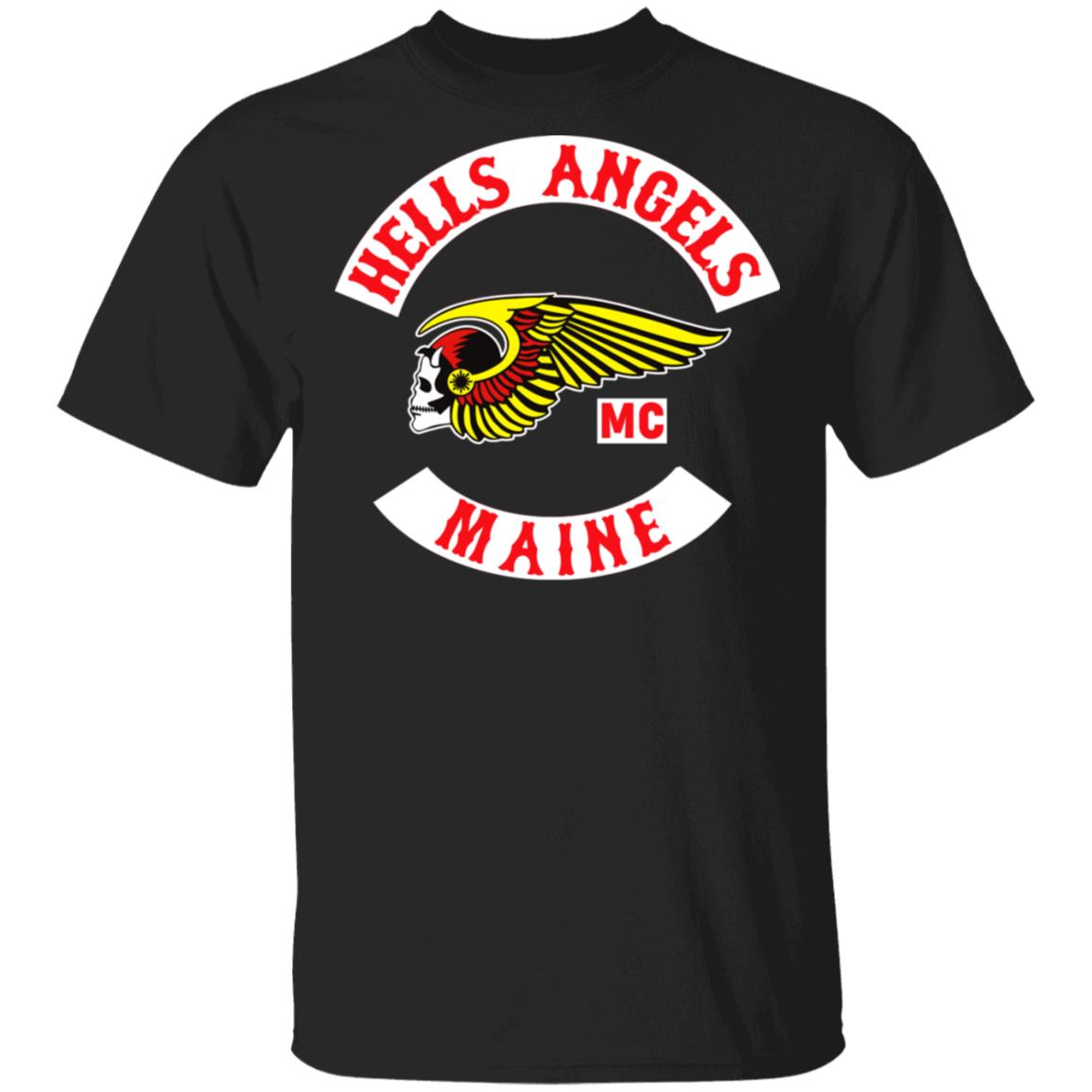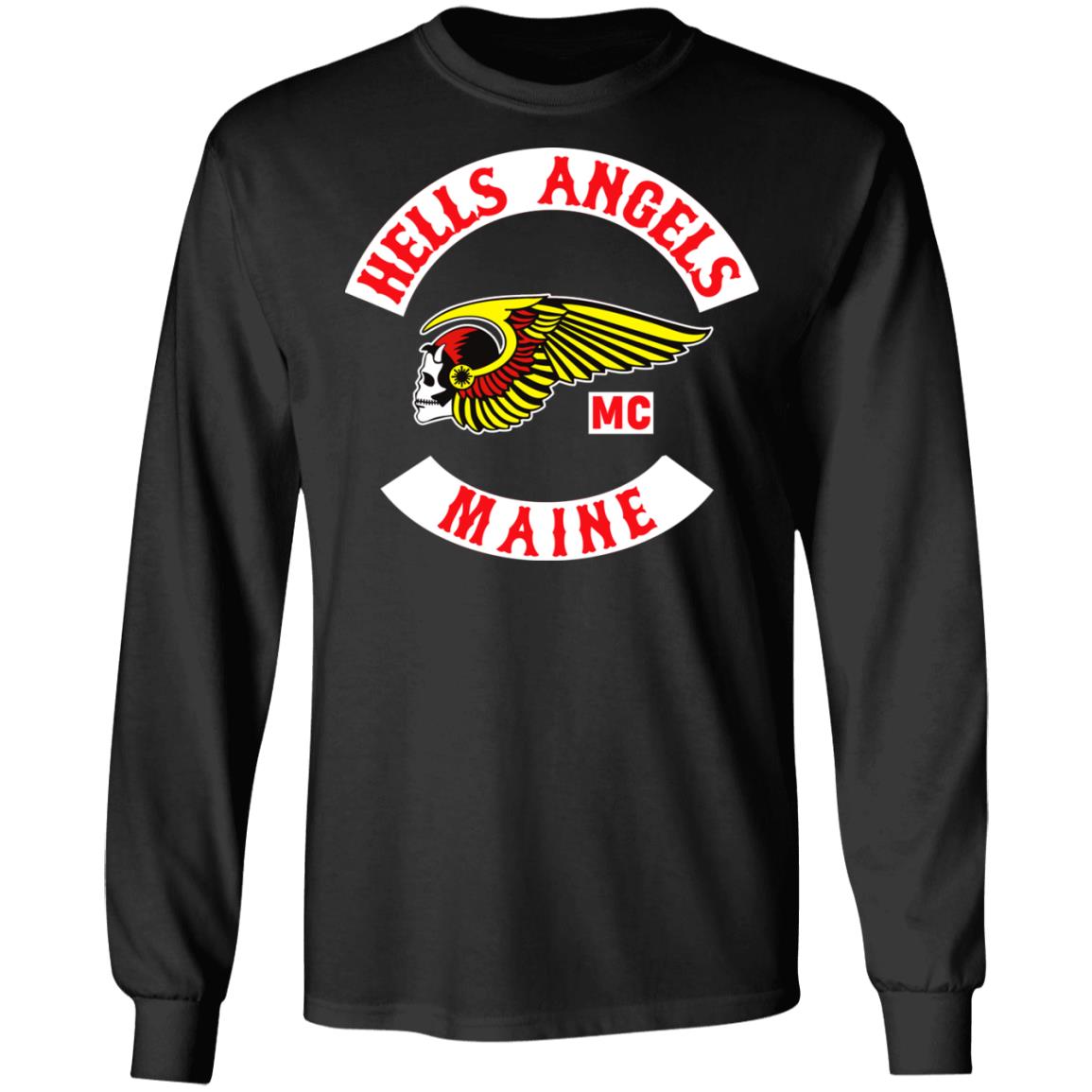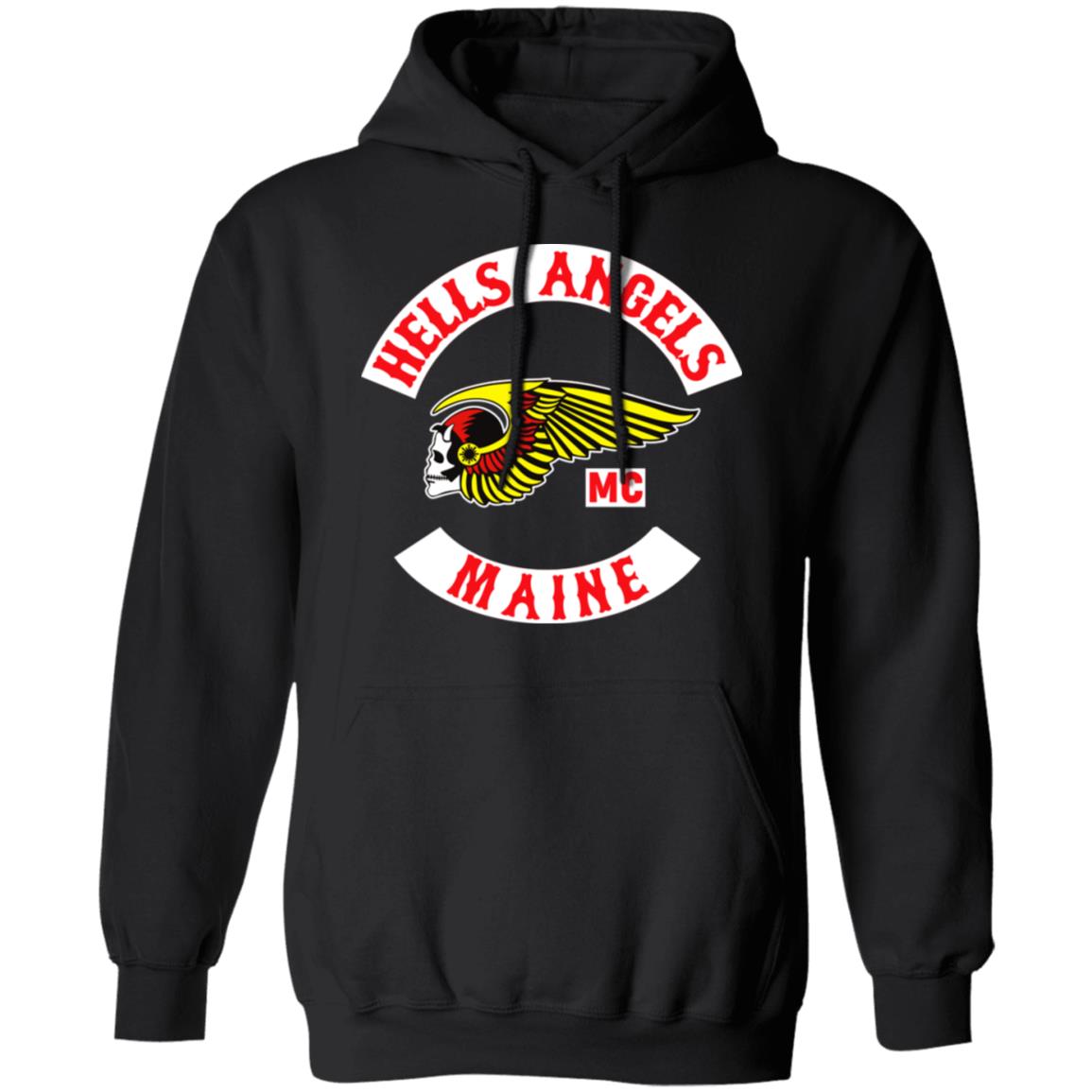Maine Hells Angels: A Comprehensive Look Into Their History, Culture, And Influence
The Hells Angels Motorcycle Club has long been a symbol of rebellion and counterculture across the United States, with chapters in every corner of the nation, including the picturesque state of Maine. This group, known for its distinctive red-and-white wings insignia, has sparked both fascination and controversy over the years. The Maine chapter of the Hells Angels, in particular, has carved out its own unique identity within this larger organization, becoming a central figure in the local biker community. Their activities, both legal and rumored, have captured the attention of locals and outsiders alike, making them a topic of intrigue and debate.
As one of the most recognized motorcycle clubs in the world, the Hells Angels have maintained an air of mystery that only adds to their allure. In Maine, this group operates under the same core principles as other chapters but adapts to the local environment, culture, and legal landscape. Whether it's through charity events, community involvement, or their association with outlaw activities, the Maine Hells Angels remain a polarizing presence. This article aims to explore their history, activities, and impact on the community, offering a balanced perspective on their role in society.
Understanding the Hells Angels requires delving into their origins, values, and the controversies that surround them. While many associate the club with crime and violence, it's essential to recognize the multifaceted nature of their existence. For those curious about the Maine chapter, this article will provide valuable insights into their operations, culture, and significance in the broader context of the Hells Angels Motorcycle Club. Whether you're a biker enthusiast, a history buff, or simply someone interested in understanding this iconic group, the following sections will offer a comprehensive view of the Maine Hells Angels.
Read also:Who Is Jakob Dylans Mom A Deep Dive Into The Life Of Sara Dylan
Who Are the Hells Angels in Maine?
The Hells Angels Motorcycle Club, established in 1948 in California, has grown into an international organization with chapters worldwide. The Maine Hells Angels, part of this global network, represent the club's presence in the northeastern United States. Known for their distinctive patched jackets and unwavering loyalty to the club, the members of the Maine chapter embody the values and traditions upheld by the Hells Angels. But what exactly does it mean to be a Hells Angel in Maine? How do they differ from other chapters, and what role do they play in the local community?
What Makes the Maine Hells Angels Unique?
While all Hells Angels chapters share common characteristics, each group adapts to its local environment, creating a distinct identity. In Maine, the rugged landscapes, tight-knit communities, and cultural values influence how the Hells Angels operate. The Maine chapter is known for its involvement in charitable events, such as toy drives and food donations, which help counterbalance the negative stereotypes associated with the club. Additionally, the chapter's interactions with law enforcement and the community at large shape their reputation in the state. By examining these factors, we can better understand what sets the Maine Hells Angels apart from other chapters.
How Do the Maine Hells Angels Fit Into the Broader Club Structure?
As part of the larger Hells Angels organization, the Maine chapter adheres to the club's rules, traditions, and hierarchy. However, their position within the broader structure raises questions about their autonomy and influence. Are they heavily influenced by national leadership, or do they operate independently? This section explores the relationship between the Maine Hells Angels and the central organization, shedding light on their role within the global network.
History of the Maine Hells Angels
The origins of the Maine Hells Angels date back to the early days of the club's expansion across the United States. As the organization grew, chapters were established in various states, including Maine. This section delves into the history of the Maine chapter, tracing its formation, key events, and notable figures. By understanding the past, we can gain a clearer picture of their present and future.
Who Are the Key Figures in the Maine Hells Angels?
Every chapter of the Hells Angels has its own set of leaders and influential members who shape its direction and reputation. In the case of the Maine Hells Angels, certain individuals have played pivotal roles in the chapter's development. This subsection highlights some of the key figures, their contributions, and the impact they've had on the club and the community.
What Challenges Have the Maine Hells Angels Faced?
Throughout their history, the Maine Hells Angels have encountered numerous challenges, both internally and externally. From legal issues to conflicts with rival gangs, the chapter has faced its share of obstacles. This section examines these challenges, providing context for their current status and the strategies they've employed to overcome adversity.
Read also:Everything You Need To Know About Matt Czuchry Girlfriend And His Life
Activities and Influence of the Maine Hells Angels
One of the most intriguing aspects of the Maine Hells Angels is their involvement in various activities, both legitimate and controversial. From organizing charity events to rumors of illegal operations, their actions have a significant impact on the community. This section explores the full spectrum of their activities, offering insights into their influence and role in society.
What Role Do the Maine Hells Angels Play in the Community?
Contrary to popular stereotypes, the Maine Hells Angels are deeply involved in community affairs. Their charitable efforts, such as toy drives and food donations, demonstrate a commitment to giving back. However, their presence also raises questions about the duality of their existence. How do they balance their public service with the negative perceptions surrounding the club? This subsection addresses these questions, highlighting the complexity of their role in the community.
How Do the Maine Hells Angels Interact With Law Enforcement?
The relationship between the Maine Hells Angels and law enforcement is a topic of ongoing discussion. While the club maintains that its activities are lawful, there have been instances of conflict and investigation. This section examines the dynamics of this relationship, exploring the challenges and opportunities for collaboration between the two entities.
Table of Contents
- Who Are the Hells Angels in Maine?
- What Makes the Maine Hells Angels Unique?
- How Do the Maine Hells Angels Fit Into the Broader Club Structure?
- History of the Maine Hells Angels
- Who Are the Key Figures in the Maine Hells Angels?
- What Challenges Have the Maine Hells Angels Faced?
- Activities and Influence of the Maine Hells Angels
- What Role Do the Maine Hells Angels Play in the Community?
- How Do the Maine Hells Angels Interact With Law Enforcement?
- Conclusion
Conclusion
The Maine Hells Angels represent a fascinating chapter in the larger story of the Hells Angels Motorcycle Club. Through their history, activities, and interactions with the community, they have carved out a unique identity that reflects both the club's core values and the local culture. While controversies and challenges persist, the Maine chapter continues to influence and shape perceptions of the Hells Angels in the northeastern United States. By exploring their story, we gain a deeper understanding of this iconic group and its place in modern society.
For those interested in learning more about the Maine Hells Angels, this article provides a comprehensive overview of their history, culture, and impact. Whether you're a biker enthusiast, a history buff, or simply curious about this legendary organization, the insights shared here offer valuable perspectives on one of the most intriguing chapters of the Hells Angels Motorcycle Club.
In conclusion, the Maine Hells Angels remain a significant presence in the state, embodying the spirit of rebellion and community that defines the club. As they continue to evolve, their story serves as a testament to the enduring legacy of the Hells Angels and their influence on American culture.


